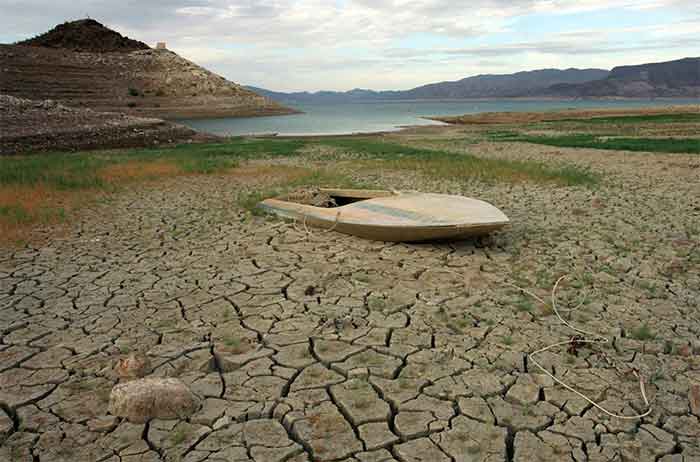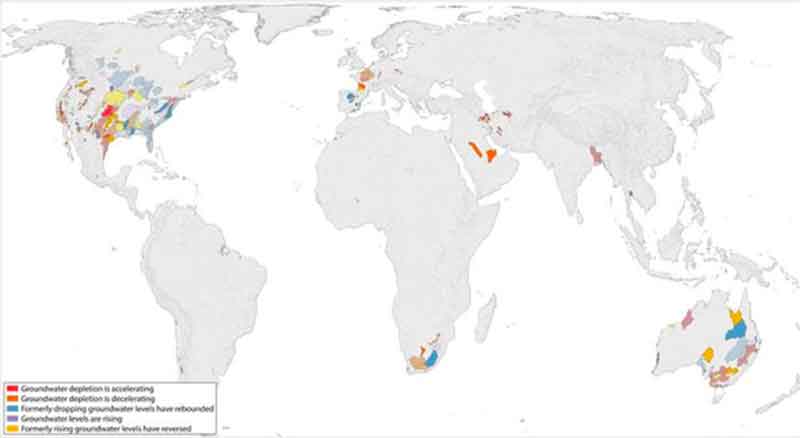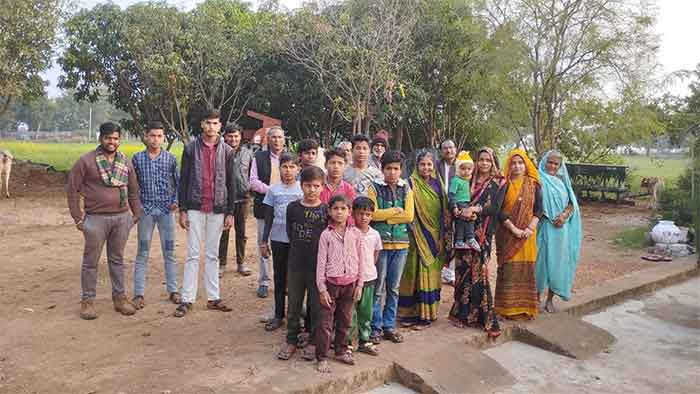
A Few Facts
https://www.commondreams.org/news/un-report-drinking-water
In its home-page on World Water Day, 2021, the United Nations pointed out the following facts:
Today, 1 in 3 people live without safe drinking water.
By 2050, up to 5.7 billion people could be living in areas where water is scarce for at least one month a year.
Climate-resilient water supply and sanitation could save the lives of more than 360,000 infants every year.
If we limit global warming to 1.5 degrees C above pre-industrial levels, we could cut climate-induced water stress by up to 50%.
Extreme weather has caused more than 90% of major disasters over the last decade.
By 2040, global energy demand is projected to increase by over 25% and water demand is expected to increase by more than 50%.
Clearly, water is a crucial resource, and the future well-being of human society depends on how well we manage our global supply of fresh water. This will require a high level of international cooperation and social justice.
Maude Barlow: water as a human right
In many countries, large corporations have taken control of water supplies, and are now selling water at prices that poor citizens cannot afford. Maude Barlow, born in 1947 in Canada, is leading the struggle against the commodification of water. As the result of her campaign, the United Nations has declared water to be a human right. This is particularly important at a time when fresh water is becoming increasingly scarce.
Here are a few things that Maud Barlow has said:
“Do not listen to those who say there is nothing you can do to the very real and large social and environmental issues of our time.”
“Everything is now for sale. Even those areas of life that we once considered sacred like health and education, food and water and air and seeds and genes and a heritage. It is all now for sale.”
“There is simply no way to overstate the water crisis of the planet today.”
“We are committed with our lives to building a different model and a different future for humanity, the Earth, and other species. We have envisaged a moral alternative to economic globalization and we will not rest until we see it realized.”
“No piecemeal solution is going to prevent the collapse of whole societies and ecosystems … a radical re-thinking of our values, priorities and political systems is urgent.”
Falling water tables in China may cause famine in Africa
After a lecture at the University of Copenhagen, Lester R. Brown of the Earth Policy Institute was asked which resource would be the first to become critically scarce. Everyone in the audience expected him to say “oil”, but instead he said “fresh water’”. He went on to explain that falling water tables in China would soon make China unable to feed its population. This would not cause famine in China itself because of the strength of the Chinese economy, which would allow the Chinese to purchase grain on the world market. However, shortages of fresh water in China would indeed cause famine, for example in Africa, because Chinese demand for grain would raise prices on the world market beyond the ability of poor countries to pay.
The threat of a large-scale global famine
Unless efforts are made to stabilize and ultimately reduce global population, there is a serious threat that climate change, population growth, and the end of the fossil fuel era could combine to produce a large-scale famine by Uthe middle of the 21st century.
As glaciers melt in the Himalayas and the Andes, depriving India, China and South America of summer water supplies; as sea levels rise, drowning fertile rice-growing regions of Southeast Asia; as droughts reduce the food production of North America and Southern Europe; as groundwater levels fall in China, India, the Middle East and the United States; and as high-yield modern agriculture becomes less possible because fossil fuel inputs are lacking, there is a danger that a famine involving billions of people, rather than millions, may occur.
My own book on water
Interested readers may download and circulate my book on water free of charge from the following link:
http://eacpe.org/app/wp-content/uploads/2021/04/Water-by-John-Scales-Avery.pdf
Other books on global problems
Other books on global problems, and on cultural history may be downloaded free of charge from the following links:
http://eacpe.org/about-john-scales-avery/
John Scales Avery is a theoretical chemist at the University of Copenhagen. He is noted for his books and research publications in quantum chemistry, thermodynamics, evolution, and history of science. His 2003 book Information Theory and Evolution set forth the view that the phenomenon of life, including its origin, evolution, as well as human cultural evolution, has its background situated in the fields of thermodynamics, statistical mechanics, and information theory. Since 1990 he has been the Chairman of the Danish National Group of Pugwash Conferences on Science and World Affairs. Between 2004 and 2015 he also served as Chairman of the Danish Peace Academy. He founded the Journal of Bioenergetics and Biomembranes, and was for many years its Managing Editor. He also served as Technical Advisor to the World Health Organization, Regional Office for Europe (19881997).
http://www.fredsakademiet.dk/ordbog/aord/a220.htm. He can be reached at [email protected]. To know more about his works and download his books visit this link. https://www.johnavery.info/















































